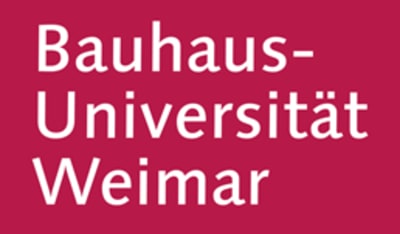
Master of Computer Science for Digital Media (MSc)
Bauhaus-Universität Weimar

Key Information
Select location
Campus location
Weimar, Germany
Languages
English
Study format
On-Campus
Duration
4 semesters
Pace
Full time
Tuition fees
EUR 250 / per semester **
Application deadline
Request info *
Earliest start date
01 Apr 2024
* Students who have graduated outside the European Union need to apply through uniassist: https://www.uni-assist.de/en/
** Per Semester
Introduction
Master of Computer Science for Digital Media(MSc)
“English is the technical language in computer science and thus it has to be an integral part of the curriculum,” says the Computer Science for Digital Media coordinator Prof. Dr. Bernd Fröhlich. “Our graduates are thus optimally prepared for the IT job market and are competitive especially in international research and development.”
The programThe internationally recognized and accredited master's program adopts an integrative approach based on two fundamental concepts:
- Study of a selection of primary subject areas: media security, data mining, information retrieval, machine learning, visual analytics, optimization, mathematical modeling, mobile media, human-computer interfaces, usability, graphics, computer vision, and visualization.
- Acquisition of soft skills through a project-based study approach including active training of scientific communication, presentation and writing skills in small groups.
The research-oriented master’s program is taught by internationally renowned professors:
- Prof. Stefan Lucks (member of the Skein team, finalist in NIST’s cryptographic hash algorithm competition)
- Prof. Benno Stein (founder of the international PAN competition on uncovering plagiarism, authorship, and social software misuse)
- Prof. Charles Wüthrich (collaborates with an educational TV production institution)
- Prof. Bernd Fröhlich (winner of the virtual reality technical achievement award)
- Prof. Volker Rodehorst (recognized as computer vision and photogrammetry expert)
- Prof. Sven Bertel (just returned from a two-year post-doctoral position at the famous Beckman Institute for Advanced Science and Technology, Human Factors Division, the University of Illinois at Urbana-Champaign).
- Prof. Eva Hornecker (recognized expert in innovative human-computer interaction concepts, user-centered design and museum installations, co-founder of the international conference series 'Tangible Embedded and Embodied Interaction', back in Germany after 8 years residence in the UK and New Zealand)
Research profile
Besides the scientific orientation of the professorships, the research orientation of the master’s program is further confirmed by a set of descriptors outlined by the Accreditation Council:
- The imparted knowledge of many courses is strongly oriented around the current research of the professorships and provides profound theoretical foundations supplemented by current research questions and results.
- Scientifically-oriented seminars and projects demand a high degree of independent development of scientific knowledge and provide career-relevant key qualifications. The projects provide a framework for students to propose, implement and defend first independent research initiatives.
- Students are regularly involved in current research and development projects during their projects, theses and as student assistants.
- Access to scientific literature (online/on-site) for students is good and the selection available in the library is continually updated by the professors.
- The laboratories of the professorships offer very good and, in some areas excellent infrastructure for the implementation of projects and theses.
- The Faculty of Media provides funding for two or three doctoral students per chair. In most cases each chair has further project-funded doctoral students who also serve as tutors for projects and theses. Accordingly excellent mentoring opportunities are available for the up to 30 new MSc students per year with 8 professors and a combined total of approximately 30 Ph.D students available for consultation.
Two further indications of the research orientation of the MSc program include the students’ involvement in international publication activities and their employment after graduation in an academic or research-oriented environment.